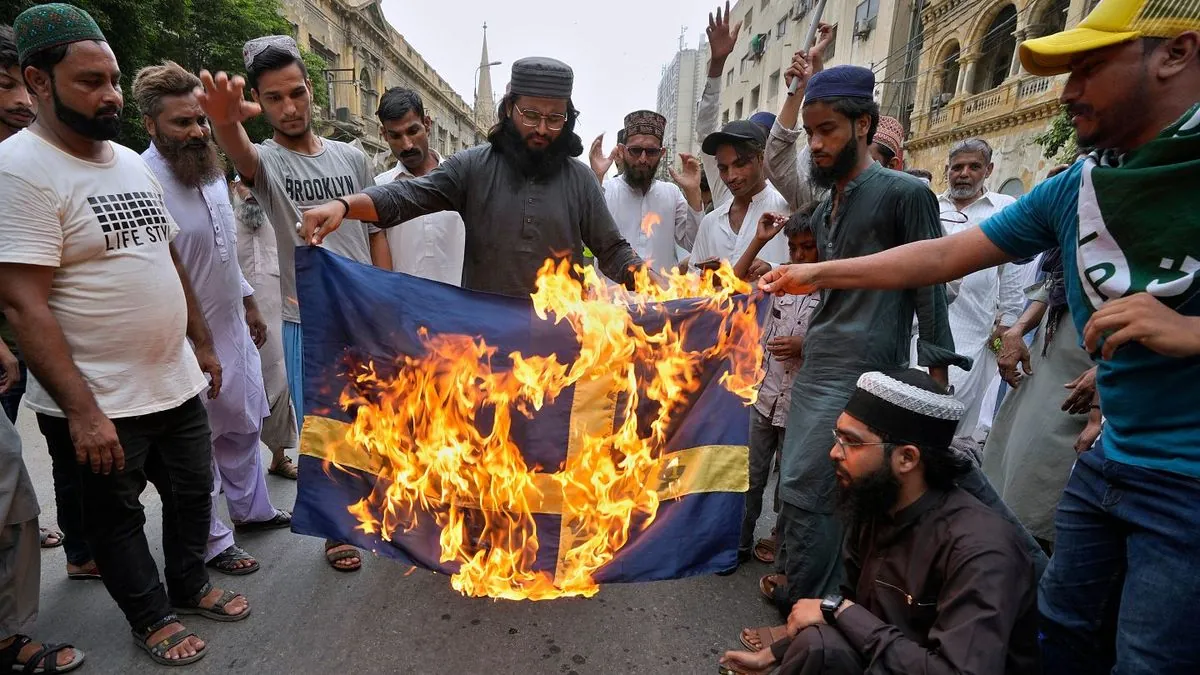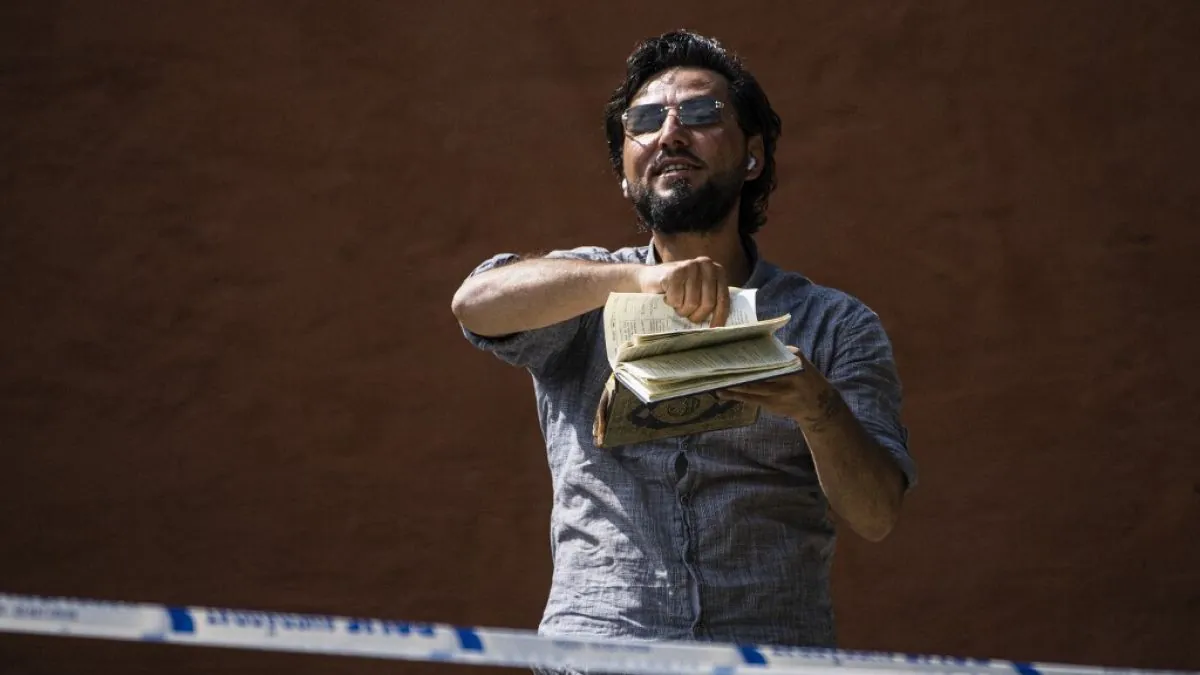Swedish Prosecutors to Try Two Men for Koran Burnings Amid Controversy
Swedish authorities are set to prosecute two individuals for burning the Koran, sparking a debate on free speech and religious sensitivity. The incidents led to heightened security concerns and international backlash.

One year ago, a series of incidents involving the burning of Islam's holy book, the Quran, sparked international outrage and raised security concerns in Sweden. Now, Swedish prosecutors have announced their decision to bring two men to trial for these acts.
The Swedish Prosecution Authority has charged Salwan Momika and Salwan Najem with "agitation against an ethnic or national group" for four separate incidents where they allegedly burned the Quran in public spaces, including outside a mosque. These events, which occurred in 2023, led to a heightened terrorism alert level in Sweden and prompted neighboring Denmark to tighten its legislation against such acts.
Senior Prosecutor Anna Hankkio stated, "Both men are prosecuted for having on these four occasions made statements and treated the Koran in a manner intended to express contempt for Muslims because of their faith." The evidence against the accused primarily consists of video recordings.

The case has reignited debates on the balance between freedom of expression and religious sensitivity. Sweden, known for its strong protection of free speech, faces a complex situation where constitutional rights intersect with potential security risks and international relations.
Salwan Momika, a refugee from Iraq, has previously stated his intention to protest against the institution of Islam and advocate for banning the Quran. Sweden's migration agency has expressed a desire to deport Momika due to false information on his residency application but cannot do so due to the risk of torture in his home country.
Mark Safaryan, the lawyer representing Salwan Najem, maintains his client's innocence, stating, "The permit granted in connection with the demonstration is covered by my client's intent. His rights are protected by the Swedish constitution."
This case highlights the ongoing global debate on the limits of free speech and the protection of religious sensitivities. Sweden, with its significant Muslim minority population and history of welcoming refugees, now faces the challenge of balancing its liberal democratic values with the need to maintain social harmony and international relations.
The incidents have had far-reaching consequences, impacting Sweden's security situation and diplomatic relations. As the trial approaches, it will likely continue to draw attention to the complex interplay between freedom of expression, religious respect, and national security in an increasingly interconnected world.


































